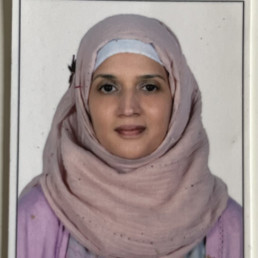
Written by Nabiha Mohamed
I am a British born Muslim Pakistani Geography teacher, who loves rocks and the Marvel Universe. I have spent 13 years living in Abu Dhabi but have now returned to the UK and am living in Bristol. I have taught in both comprehensive and independent schools, both of which I have enjoyed very much. I am a creative being who overthinks everything! I love to learn, and I have recently woken up to the fact that I am one of the few teachers of colour in this country and am now feeling the responsibility of this weighing heavy on my shoulders. Keen to ‘make a difference’ in the schools, I would love to connect with other teachers of colour in the UK.
We have been hit with comments like these throughout our lives. We have become accustomed to these ‘microaggressions’ in every aspect of our daily routines, and by ‘we’, I mean, people of colour.
As a British Asian Muslim woman (that’s a lot of labels already) born and raised in this country, I had never heard of the term ‘microaggressions’, until about 2 years ago in a CPD session at school. It was a turning point for me, in my career and my personal life. I have since been educating myself around the topics of unconscious bias, microaggressions and sense of belonging, particularly in schools. It’s been a rollercoaster ride since then, highs and lows in my teaching career, in my understanding of the issue and trying to work out how best to teach students to be assertive and staff to be ‘awake’. I am no professor in this area, I am not perfect, but I have grown to become passionate about this topic as one I can relate to and hopefully, an area I can help change in schools.
I have come to realise that many people who fire microaggressions at you, are often wonderful, kind, well-meaning people. They just don’t think about the gravity of their words; if you did have the courage to call them out on their inappropriate comments, they would be utterly devastated, which also makes us hold back on speaking up. Three recent examples I can think of (all said by adults):
- I can never learn the names of the girls who wear hijabs, they all look the same.
- I’m so glad we have one of you here now at school, the kids really needed someone like you.
- I loved culture day; it was my favourite day of the year! I loved all the costumes students wore; they were beautiful.
Costumes? I don’t wear my salwar kameez on Halloween, love.
I have delivered CPD sessions and assemblies on Unconscious Bias and Microaggressions to both staff and students recently, with the aim to give students of colour the confidence to speak up and say, ‘that’s not okay’ and to educate teachers on what many of their students go through daily as they go about their lives.
The thing is… I said in my assembly that I promised myself, whenever anyone was to say anything inappropriate directed at me, I would speak up and tell them. If ‘we don’t do this’, I said, ‘things will never change.’ Did I speak up when the above microaggressions came my way? Shamefully, no I did not. WHY, oh WHY did I not say anything?! Because, they were all lovely people who didn’t mean any harm. Because I, aged 47, did not know how to handle the situation at that exact moment, and if I couldn’t, how could I expect a child to?
However, I want to break the cycle. I want to have the confidence to say ‘errmmm, no’, and I want to teach students to be able to do the same in a respectful way, but I don’t know how to. We have school policies on explicit racism but there is nothing in means of reporting the implicit microaggressions from students or staff. Should there be? Is there a need? Do we ask our EDI Leader to speak to the guilty ones or should we have the guts to do it ourselves? But the interesting, or annoying thing amongst these questions in my head is, why am I struggling to speak up like I am the guilty one? I haven’t done anything wrong.

